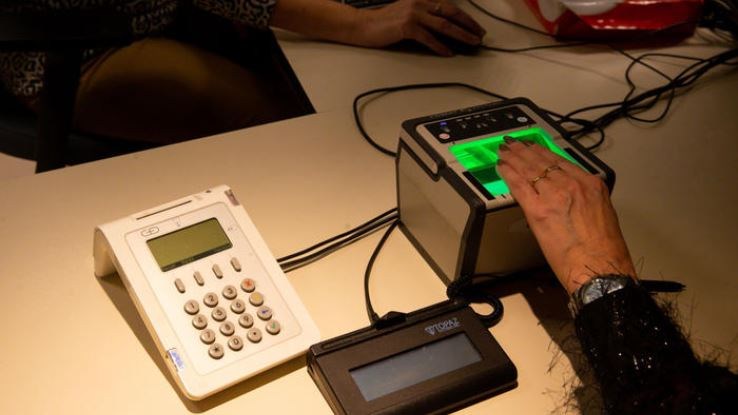The City of Antwerp has started scanning the fingerprints of everyone applying for a new electronic identity card (eID) today, as the fingerprint ID cards will begin being issued by all Belgian municipalities this year.
By integrating the fingerprints on the ID cards, Antwerp is one of the first major Flemish cities to take part in the European process of turning the ID card into a more secure and universal identity document that complies with all the strict international rules to make identity checks more efficient.
"It is important to know that the fingerprint is only present on the card (in the chip) itself, and is not stored in a central database," the Antwerp alderman in charge of the process, Nabilla Ait Daoud, told ATV, adding that only the responsible authorities can read the chip and see the fingerprints.
Applying for the new eID is not the same as the procedure for the old eID, as residents are expected to show up in person to apply for and collect the eID, so that the fingerprints of the applicant can be taken at the time of application. The fingerprint will then be checked again at the time of collection.
Related News
- Fingerprint ID cards will be issued across Belgium by end of year
- New Belgian eID 'first in the world' with extra protection against forgery
- What changes on the new Belgian eID cards
Besides the fingerprints on the chip, the new ID will also have a different colour, and the photo is on the left instead of the right. A perforated picture of the holder will also be engraved in the back of the card.
Not everyone living in the city of Antwerp immediately has to apply for a new one, as the current identity cards remain valid until the expiry date shown on the card.
In the rest of Belgium, the new ID cards with the holders' fingerprints will begin being issued by all Belgian municipalities by the end of 2020.
According to some critics, however, the inclusion of fingerprints could violate holders’ privacy, and a study by a cyber and computer security research group at KU Leuven hit out at the decision calling its impacts on privacy “unclear” and “disproportionate.”
Late last year, a pilot project was launched in 25 municipalities across the country whose town halls began issuing fingerprint ID-cards, but the roll-out was partially delayed amid the coronavirus crisis.
It is estimated that all Belgian residents will hold a new eID card, including fingerprints, from 2030 at the earliest.
Maïthé Chini
The Brussels Times

